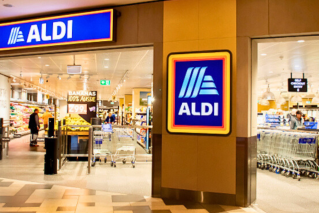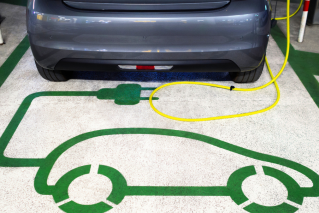Industry Super Australia grilled over estimated costs of early super access


Industry Super Australia (ISA) has come under fire for using controversial assumptions to calculate the future cost of early super withdrawals.
Industry Super Australia (ISA) has been grilled by a parliamentary committee for using assumptions that potentially overestimate the cost of early superannuation withdrawals.
Liberal MP Tim Wilson pressed the industry group on the assumptions it used to calculate the estimated impacts during a hearing led by the Standing Committee on Economics, which Mr Wilson chairs.
Following accusations from Treasury that ISA had exaggerated the future cost of withdrawing $20,000 from super, ISA deputy chief executive Matt Linden told the committee on Thursday ISA had used different assumptions for its early super access calculators compared to its generic online calculators.
ISA initially said a 30-year-old would have $97,214 less in their superannuation at retirement if they withdrew $20,000 under the Coalition’s super early access scheme, while ASIC’s MoneySmart website said they would be $43,032 worse off.
Mr Linden told the committee that “as of last week” ISA had changed the assumptions underpinning its modelling and switched to a single set of assumptions for all of its calculators.
The industry group has since revised down its estimate of the future cost of a 30-year-old withdrawing $20,000 to $79,393.
Asked by Mr Wilson if ISA had made the change because it had been “caught out” for exaggerating the financial impacts, Mr Linden said it adjusted its assumptions because ASIC had revised its guidance for modelling related to the early super access scheme.
Tweet from @MichaelRoddan
Mr Linden said the ISA’s first assumption set for modelling the effect of early withdrawals “was broadly consistent with those adopted by the Productivity Commission”.
He said ASIC’s decision to revise its guidance provided a chance for ISA to revisit the assumption set used for generic calculators and to “make minor adjustments” to both these calculators and the early release modelling.
Legislated SG increase called into question
Following an opening statement from ISA chief executive Bernie Dean, Mr Wilson asked Mr Dean if he accepted that increases to the compulsory superannuation guarantee come at the expense of higher wages.
Mr Dean said he rejected this proposition.
But what we do believe, like many other Australians, is that the super guarantee increase is going to be more important than ever before in helping Australian members recover some of the savings that they’ve lost in recent times,” Mr Dean said.
Mr Wilson then suggested that asking employers to pay a higher superannuation guarantee would reduce the number of Australians they could hire, as it would diminish the amount of capital at their disposal.
“Let’s paint a realistic scenario, which is, you could introduce the contributions and have more people out of work, or keep it where it is, and have more people in work. Your preference would be to have more people out of work,” Mr Wilson said.
Mr Dean said “drawing a relationship between the number of people unemployed and the superannuation guarantee is problematic, to say the least”.
He said the superannuation guarantee had increased by less than one per cent over the past 17 or 18 years, during which time wages had increased at different speeds, the economy had grown, and unemployment had generally fallen.
The Grattan Institute has previously said roughly 80 per cent of the cost of increases in superannuation contributions “is passed to workers through lower wage rises”. As has the Reserve Bank.
But other think tanks have said historical, real-life experience shows this is untrue.

The government announced its early access to super scheme on March 22. Photo: AAP
Industry blindsided by govt
Labor MP and committee co-chair Andrew Leigh’s first question asked whether the federal government had consulted the superannuation industry before announcing its early super access scheme.
Mr Dean said it had not.
But he said the 15 funds ISA represents had, in 99 per cent of cases, paid out early withdrawals within five days of receiving claims from the ATO.
Mr Linden said data showed industry funds had responded to withdrawal requests faster than retail funds, which had paid out withdrawals within five days in 93 per cent of cases.
In response to further questions from Dr Leigh, Mr Dean said trustees were doing “everything in their power” to avoid fee increases as a result of the government’s early super access scheme.

ISA chief executive Bernie Dean said the legislated increases to the super guarantee are more important than ever.
Industry’s role in recovery
Mr Linden noted that the scheme would somewhat curtail the industry’s capacity to contribute to the eventual economic recovery, as it had eaten into the amount of money it could invest into various projects.
Forcing funds to sell assets in a falling sharemarket could also worsen the financial impacts of COVID-19 by adding momentum to investor sell-offs, Mr Linden added.
However, Mr Linden said super funds were still well placed to invest in infrastructure and other projects, and had already “assisted a range of companies with capital raisings and equity injections” such as Ramsay Health and NAB.
Mr Dean added: “For those of you who frequent Canberra, you might notice that … the Industry Super Property Trust (ISPT) is expanding the holdings of members into buildings that are frequented by government departments.”
“I don’t think you can really swing a cat in Canberra without hitting up a building that’s owned by industry super fund members, whether it be through a fund in particular or through the property trust,” Mr Dean said.
“There’s going to be an expansion of member-owned property throughout Australia over the next couple of years – not just an expansion but probably a bit more awareness amongst members of just how broad their ownership is of these things.”
The New Daily is owned by Industry Super Holdings








